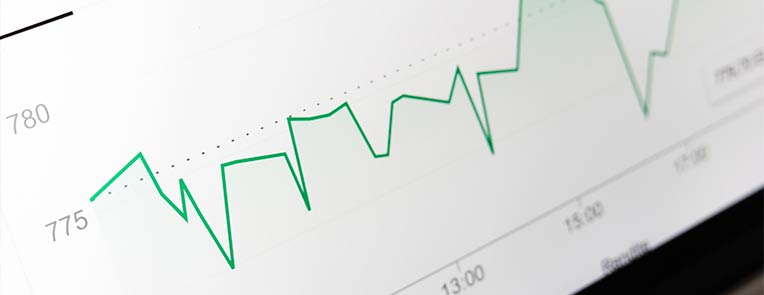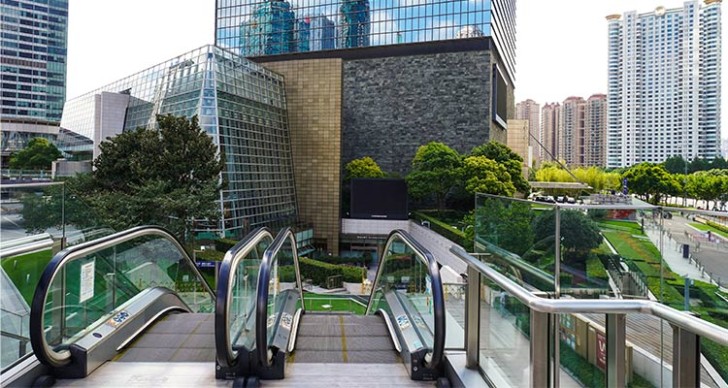A huge flow of public funds is channelled through public procurement: a splendid opportunity to shape the market and offer the private sector a positive role in the achievement of common development objectives.
8.000.000.000.000 euro: this is the calculated global amount of money put into action through the public procurement system, as from an estimate of the World Bank. This may represent between 13% to 20% of GDP, depending on the various economic system, but it brings along the interest of corruption, mismanagement and lack of experience, even from good willers.
On the one hand, public procurement is the way the private initiative may contribute in a win-win fashion to the achievement of public interest, giving a concrete support to the implementation of public policies: to principles transformed into priorities, translated into policies and implemented through measures aiming at the fulfilment of the common interest.
This is an ideal way of synchronising the power of representation, the democratic institutions into concrete facts. And this may happen by asking for private organisations ingenuity to be part of the process, by bringing in know-how, innovation, new approaches, fresh ideas and a vision.
Fostering innovation by shielding from the risk
A relatively new approach to public procurement allows for a competition of ideas: it’s a way to facilitate and cocoon the experimentation and consolidation of new concepts. While private entrepreneurs might be fearful of taking the full risks coming from innovation, the competitive scenario set up through the “competitive dialogue” approach to tendering may pave the way to a common identification of new emerging solutions. The positive interaction of smart ideas coming from the private sector and public servants knowing the problems, the needs, the bottlenecks of development is an ideal cradle for shaping new ideas. This is an environment letting new technologies emerge, be testes in their pilot stage and then spread into the market.

In a “competitive dialogue” procedure, the rules allow for the tender specifications to be fine-tuned through a fair conversation and interaction between the contracting authority and the bidders: the best compromise being reached after an open-minded negotiation, which sometimes might liken a co-project.
Needless to say, this is a very difficult way to go through and only mature systems may look at this in a serious way: personal intrigue, stealing of ideas, breach of copyrights are easily at reach. Reciprocal esteem and confidence is a prerequisite for a useful implementation of the “competitive dialogue”.
Greening the market
Public procurement may be the starting point for leading the industry towards different and strategic goals. Until recently, the externalization of environmental costs allowed a unsustainable growth model, concentrating benefits on industrial investors who were allowed to pollute and push the consequences to the public sphere. By and large, it’s been the introduction of environmental targets and sustainable growth parameters in the terms of reference that obliged the private sector to search and invest in clean technologies, circular economy, reduction of wastes, sustainable solutions.
The introduction of a “green” concern in public spending justified research and investment into a new sector which was previously economically deserted. Nowadays, the renewable resources market and related industries appear to be a leverage for social and economic development all over the world.
Smart services for a smart city

A sound and smart approach to tendering is a distinctive feature within the governance fabric of a modern city, striving for long lasting and sustainable development. All cities are competing on the world stage, resources are limited - both human and financial - and the attractiveness of urban areas go through an uncountable number of details determining their actual relevance and position. A clean, wise, modern approach to public procurement is a key issue allowing for positive returns and attracting serious investors, inventions, know-how.
Getting rid of corruption and private interest in the management of public resources is just the obvious first step. The real added value of public procurement comes with capacity building, long-term vision, synchronization of interests and approach among the different departments involved in the preparation of a tender dossier.
Tendering mustn’t be a way of showing power, but it is a challenging opportunity to play a responsible proactive task in the heart of the Administration. It is a clever and neat procurement management that may help the introduction of new ideas, solutions and innovative thinking.
Zigurat offers a public procurement specific unit within its “
Smart Cities” master: the unit is focusing on a practical introduction to the EU-based public procurement approach to tendering for services.
Andrea Gaifami.
Professor of Master's in Global Smart City Management.
Director of Operations at SITA, Milano.


 In a “competitive dialogue” procedure, the rules allow for the tender specifications to be fine-tuned through a fair conversation and interaction between the contracting authority and the bidders: the best compromise being reached after an open-minded negotiation, which sometimes might liken a co-project.
Needless to say, this is a very difficult way to go through and only mature systems may look at this in a serious way: personal intrigue, stealing of ideas, breach of copyrights are easily at reach. Reciprocal esteem and confidence is a prerequisite for a useful implementation of the “competitive dialogue”.
In a “competitive dialogue” procedure, the rules allow for the tender specifications to be fine-tuned through a fair conversation and interaction between the contracting authority and the bidders: the best compromise being reached after an open-minded negotiation, which sometimes might liken a co-project.
Needless to say, this is a very difficult way to go through and only mature systems may look at this in a serious way: personal intrigue, stealing of ideas, breach of copyrights are easily at reach. Reciprocal esteem and confidence is a prerequisite for a useful implementation of the “competitive dialogue”.
 A sound and smart approach to tendering is a distinctive feature within the governance fabric of a modern city, striving for long lasting and sustainable development. All cities are competing on the world stage, resources are limited - both human and financial - and the attractiveness of urban areas go through an uncountable number of details determining their actual relevance and position. A clean, wise, modern approach to public procurement is a key issue allowing for positive returns and attracting serious investors, inventions, know-how.
Getting rid of corruption and private interest in the management of public resources is just the obvious first step. The real added value of public procurement comes with capacity building, long-term vision, synchronization of interests and approach among the different departments involved in the preparation of a tender dossier.
Tendering mustn’t be a way of showing power, but it is a challenging opportunity to play a responsible proactive task in the heart of the Administration. It is a clever and neat procurement management that may help the introduction of new ideas, solutions and innovative thinking.
Zigurat offers a public procurement specific unit within its “Smart Cities” master: the unit is focusing on a practical introduction to the EU-based public procurement approach to tendering for services.
Andrea Gaifami.
Professor of Master's in Global Smart City Management.
Director of Operations at SITA, Milano.
A sound and smart approach to tendering is a distinctive feature within the governance fabric of a modern city, striving for long lasting and sustainable development. All cities are competing on the world stage, resources are limited - both human and financial - and the attractiveness of urban areas go through an uncountable number of details determining their actual relevance and position. A clean, wise, modern approach to public procurement is a key issue allowing for positive returns and attracting serious investors, inventions, know-how.
Getting rid of corruption and private interest in the management of public resources is just the obvious first step. The real added value of public procurement comes with capacity building, long-term vision, synchronization of interests and approach among the different departments involved in the preparation of a tender dossier.
Tendering mustn’t be a way of showing power, but it is a challenging opportunity to play a responsible proactive task in the heart of the Administration. It is a clever and neat procurement management that may help the introduction of new ideas, solutions and innovative thinking.
Zigurat offers a public procurement specific unit within its “Smart Cities” master: the unit is focusing on a practical introduction to the EU-based public procurement approach to tendering for services.
Andrea Gaifami.
Professor of Master's in Global Smart City Management.
Director of Operations at SITA, Milano.
